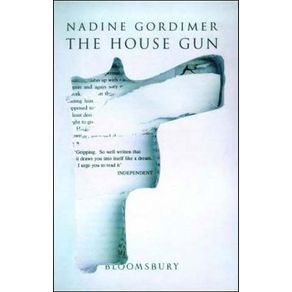Privileged whites in post-apartheid South Africa, Harald and Claudia Lindgard have managed to live the better part of 50 years without ever confronting the deepest shadows in their culture or in their own souls. Though they conceive of themselves asliberal- minded, neither has ever taken any active political stand; neither has ever been in any black person's home. Harald sits on the board of an insurance company; Claudia is a compassionate doctor. Neither of them has ever been inside a courtroom before; neither has ever been inside a prison. When their architect-son Duncan is arrested for murder, both know that the charge is preposterous. But Duncan himself fails to deny his guilt and his parents are brought by a harsh and ungainly process to accept the possibility that he has committed an unthinkable crime. Nadine Gordimer's The House Gun is a gravely sustained exploration of their long-delayed but necessary descent into an intimate acquaintance with the culture of violence that surrounds them and that is "the common hell of all who are associated with it." The novel is a mystery, but not in the usual sense of the whodunit. Here the question of who quickly gives way to why and thence to other, still deeper quandaries of culpability, both immediate and ultimate. The enigmatic Duncan becomes a dark mirror in which his stunned parents must desperately grope for a new vision of themselves and their world--a vision that will not shatter, as their old one has, under a single blow from reality.



